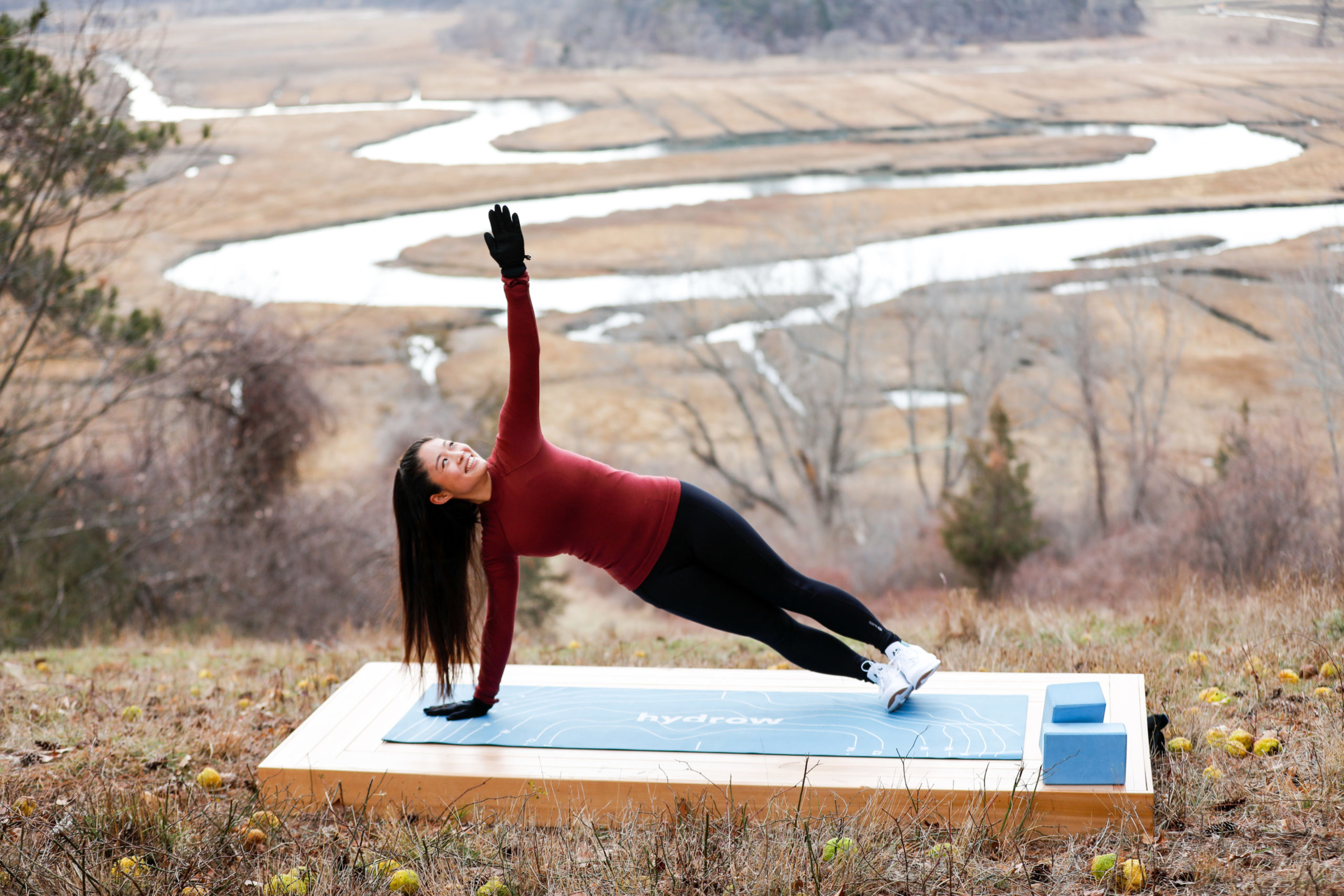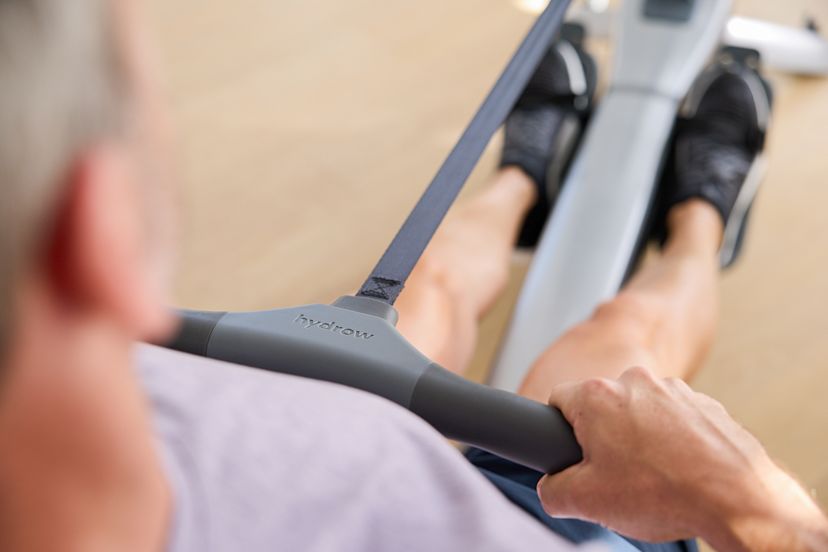How To Build Your Core with the Hydrow Rowing Machine

Want to improve your core strength while you row? Need some ideas or tips on how to better engage your midsection as you work out on Hydrow? In this article, we’ll give you some tips on how to improve core strength and achieve a more well-rounded overall workout.
Why core matters in rowing machine workouts
To perform the rowing stroke correctly, your core should be engaged the entire time. Activating your abdominal muscles ensures your other muscle groups can work at their full potential.
While you can get away with rowing while not engaging your core, you’ll eventually hit a ceiling with regard to speed and endurance. Core activation prepares your body to work against resistance, and in rowing we want to connect with the resistance because this is what creates power, speed, and sweat!
Another reason rowing is great for core definition is that rowing is a terrific fat-burning workout. Since rowing engages the majority of the muscles in your body, you’ll turn on more total muscle fibers, which means you’ll light up more of the metabolic furnace that torches fat and builds lean toned muscle.
How to use a rowing machine for stronger abs and core
The key to engaging your core during a rowing workout is to understand what your core actually does during each part of the rowing stroke. To help clarify this, let’s go through each part of the rowing stroke in the order we teach them at Hydrow.
Part 1: The Finish
As you enter the finish, your core muscles help you stabilize as you lean slightly backward. This isn’t a big lean - think one o’clock on a clock face at most - but it’s enough that your core will turn on to keep you balanced.
Your abs are so smart that they’ll do this if you’re just sitting in a chair. Try leaning slightly backward in a backless chair and you’ll feel your core react. Then try the same movement again, but this time keep your core engaged for the entire movement.
The latter option, in which your core is turned on throughout, can help you get more oomph out of every rowing stroke. As an added bonus, your core will get stronger and develop more stamina along the way.
Part 2: The Recovery
After the finish, your core contracts and swings your upper body into an 11 o’clock position. Your shoulders and back remain engaged the entire time. The recovery is a short rest for the muscles of the legs and arms, but your midsection actually continues to work during this stage to help you move through space.
Depending on your rhythm, or strokes per minute, this subtle adjustment may fly by so fast you’re missing it. Learning and developing this awareness is why it’s always good to occasionally do some slower-stroke movements in the range of 18 to 22 strokes per minute. (At Hydrow, many of our cool-downs have a technique focus for this reason.) The extra time in the recovery can give you added runway to feel for abdominal engagement in the movement.
Part 3: The Catch
In the catch, your thighs come flush with your torso. Rather than hunching your back forward to achieve this compression, turn on your core to hinge your upper body slightly forward to 11 o’clock. Think of the feeling you have when coming forward on a sit-up or crunch, and duplicate it as your body moves toward the screen.
Part 4: The Drive
As you engage your legs to power yourself backward during the drive, it’s important that your body feels stable and strong throughout the movement. If at any time your balance feels unstable, your legs won’t be able to press as hard into the footbeds, and muscles of the legs will go unused.
Core also comes into the picture to help manage the tension you have on your handle. You want resistance from the handle as you enter the drive, because working against this resistance is what gives you the best bang for your buck in rowing. (In outdoor rowing, this resistance comes from moving the oars through water.)
Off-rower exercises to build your core strength
To further help you develop your core strength, consider incorporating abdominal exercises that take place off the rower. Hydrow’s On The Mat series includes a library of workouts that can be completed entirely off the rower to supplement your fitness regimen. Here’s a quick rundown of the different types of classes at your fingertips on Hydrow.
Pilates workouts
Originally invented by Joseph Pilates as a way to help injured soldiers rehabilitate their bodies, Pilates provides a great way to isolate your core muscles in different ways. This strength work that will carry back over into your rowing efforts and help you stabilize throughout your workout. Check out various class options and lengths with Christie, your Hydrow Pilates instructor.
Yoga workouts
Our Hydrow yoga and awareness program includes three different styles to help you tone as well as unwind. They include:
- Flow: Flow-based classes, moving fluidly from one power posture to another while focusing on breath and balance.
- Align: Designed for those just getting into (or back into) yoga and those who want to further their journey of learning yoga basics and benefits.
- Restore: Also known as yin yoga, this is a slower more gradual form of practice with longer holds in each pose for deep grounding and mindful, meditative relaxation.
Yoga is a great way to build isometric strength in your core muscles and complements rowing nicely. No matter your fitness level or familiarity with yoga, you’ll find exactly the cross-training workout that fits your needs in our yoga library. Channing and Owen are ready to get started with you as soon as you are!
Strength and mobility workouts
Keep yourself in tip-top shape, build muscle tone, and burn fat with a selection of workouts designed to supplement your rowing routine! Hydrow’s strength and movement specialist Peter is ready to help you keep your body in perfect working condition.
Rowing is not just one of the best core workouts you can do; it’s a great workout for your entire body. And with Hydrow’s different offerings, you can actually replace your whole workout routine if you like! Learn more about our different offerings and features here.


